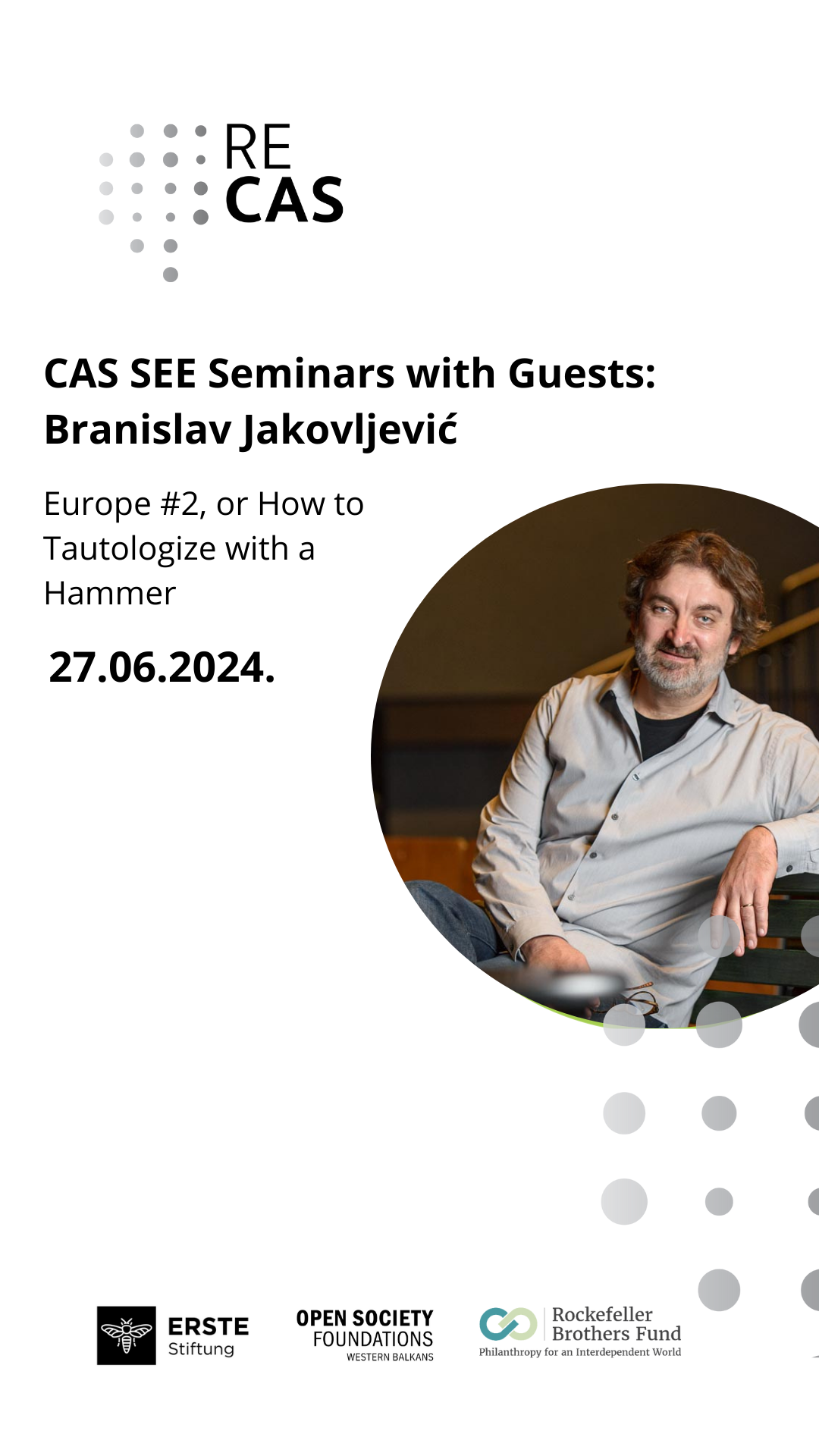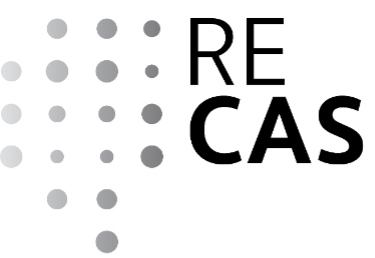
CAS SEE Seminars with Guests: Branislav Jakovljević on „Europe #2, or How to Tautologize with a Hammer“ in conversation with the RECAS Fellow Aleksandar Bošković.
SDGs: SDG 16 Author(s): Branislav Jakovljević , Aleksandar Bošković Thematic Area: Social Criticism Published: 2024 Language: English Tags: video | More DetailsWith the disintegration of Yugoslavia, several second-generation conceptual artists in Serbia took an unexpected turn: from “language works” to longer narrative forms, specifically stories and novels (Raša Todosijević, Sreten Ugričić, Slobodan Tišma, to name some). The most intriguing among them is Vojislav Despotov’s short novel Europe No. 2 (1998). At the time when thousands of young citizens of Serbia and other parts of the former Yugoslavia sought existential safety in the West, the protagonist of Despotov’s novel heads in the opposite direction – to Russia. The central conceit of Europe No. 2 is his discovery of a century-long gargantuan project of building an exact copy of Europe within the expanses of Siberia, an undertaking that the Soviet empire inherited from its Tsarist predecessor. After the collapse of the Soviet Union, the government turns this continent-size replica to artists to perform their works, thus turning the Gulag archipelago into a vast performance art retreat. Among other things, Despotov’s novel is a reflection in the narrative form about the nature of tautology as one of the principal formal procedures of conceptual art, and as such, it follows up on his book of theoretical writings The Hammer of Tautology (1984). Europe No. 2 brings to its ultimate conclusion Roland Barthes’s assertion that “tautology creates a dead, motionless world.” Read from the contemporary perspective, it offers a stunning comment on the nature of the Russian empire(s). It is one of the most unorthodox and insightful takes on the historical logic of the Siberian labor camps as a basis for their historical continuity, up to and including the present day, when Putin regime’s propaganda fabricates a “West” against which it needs to “defend” itself.
Back
